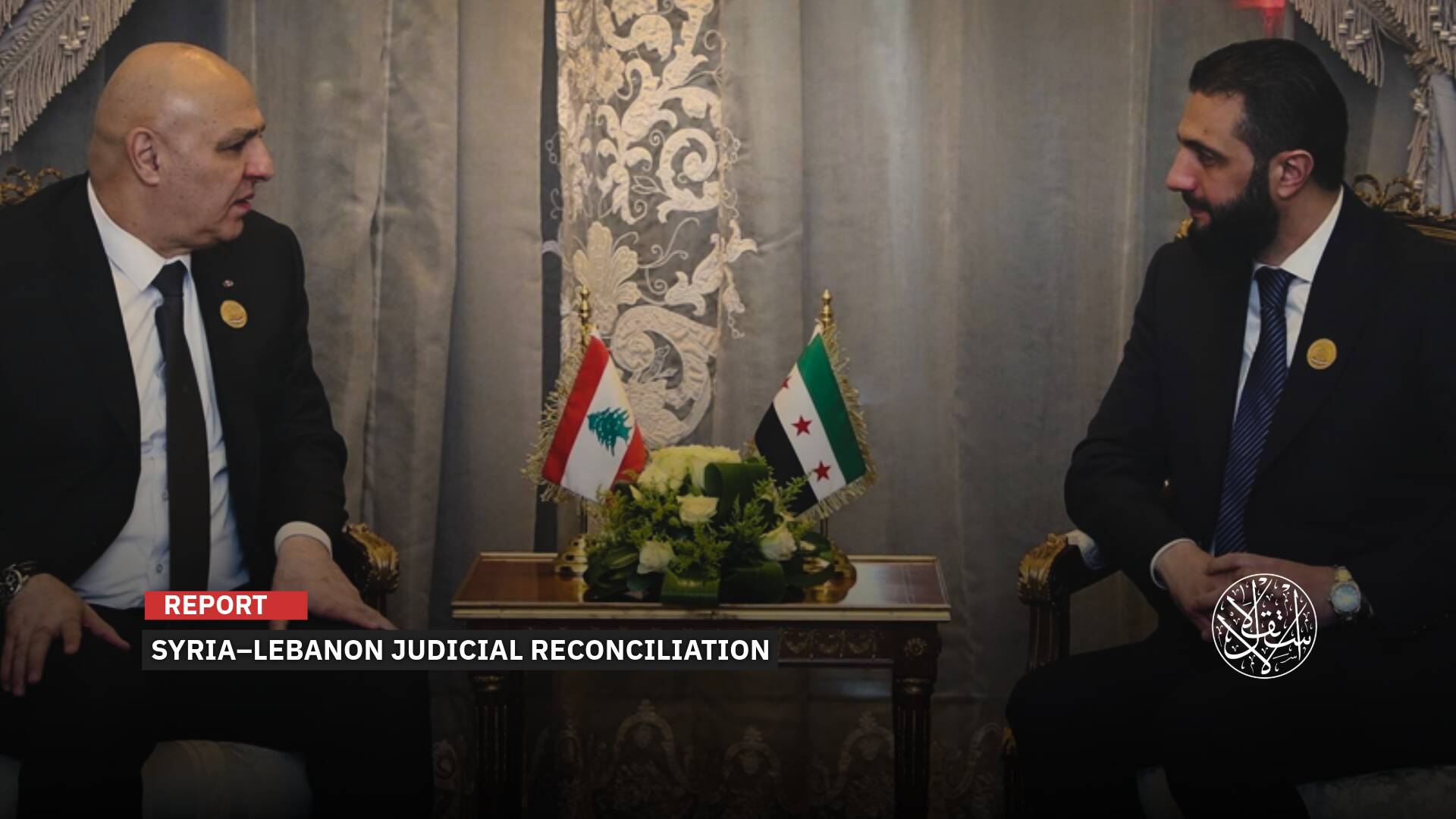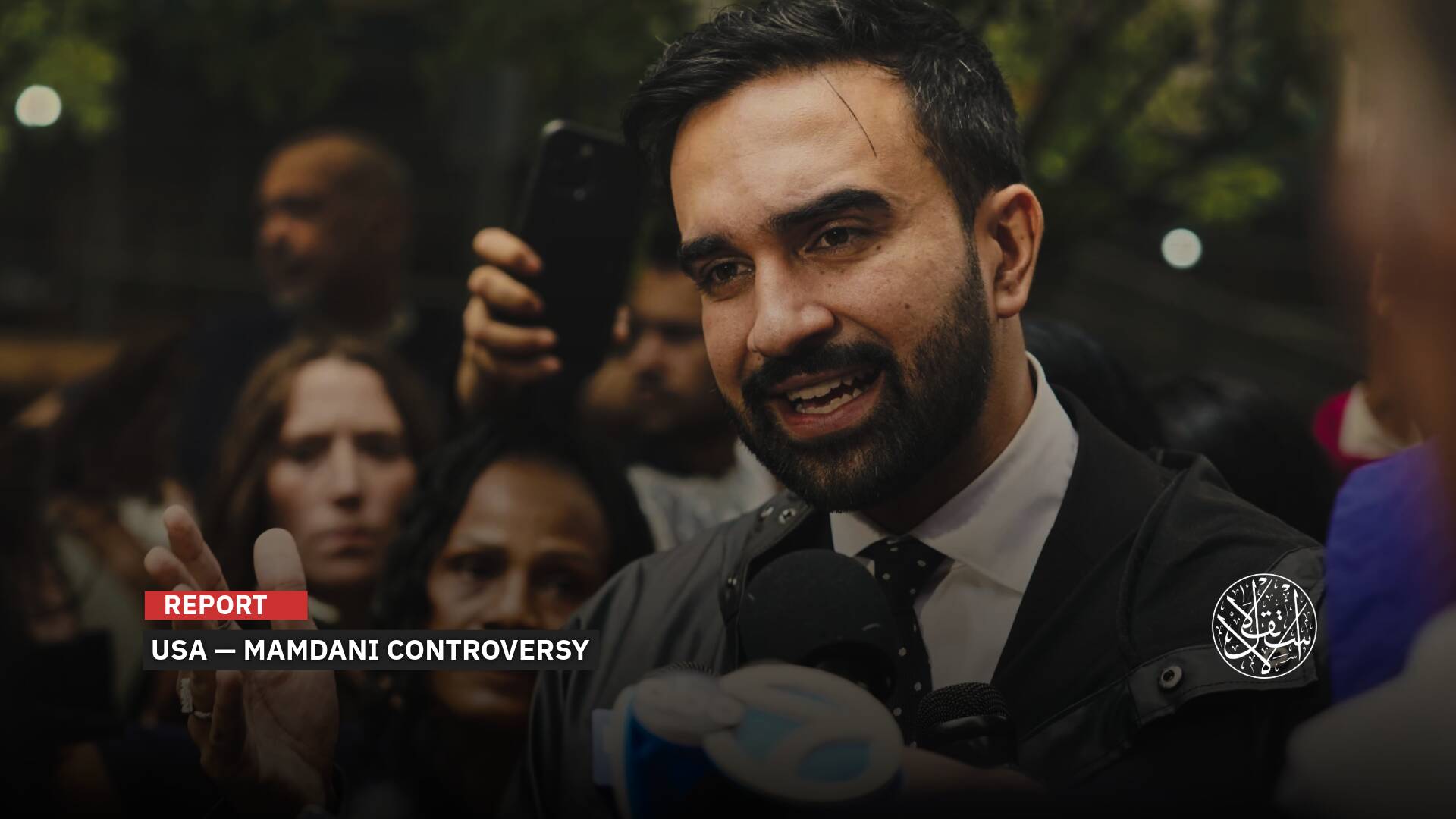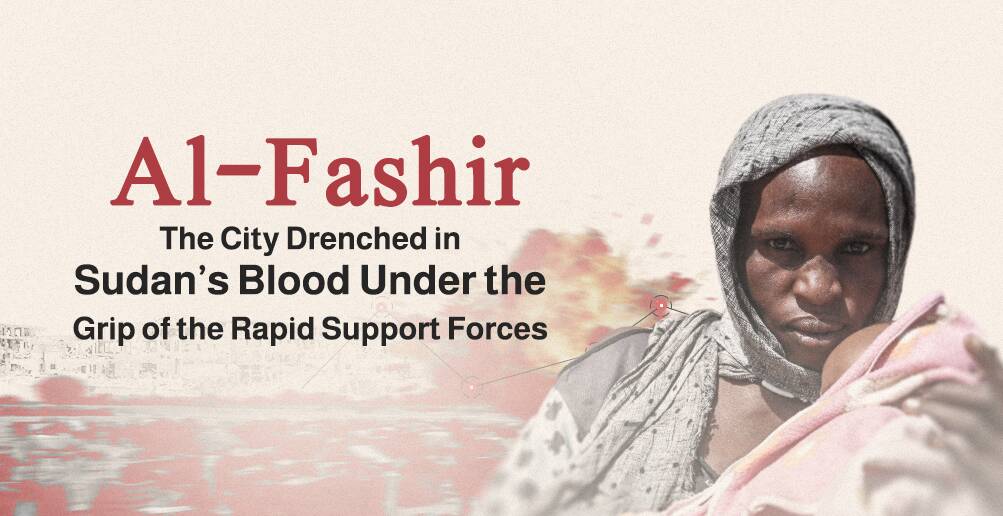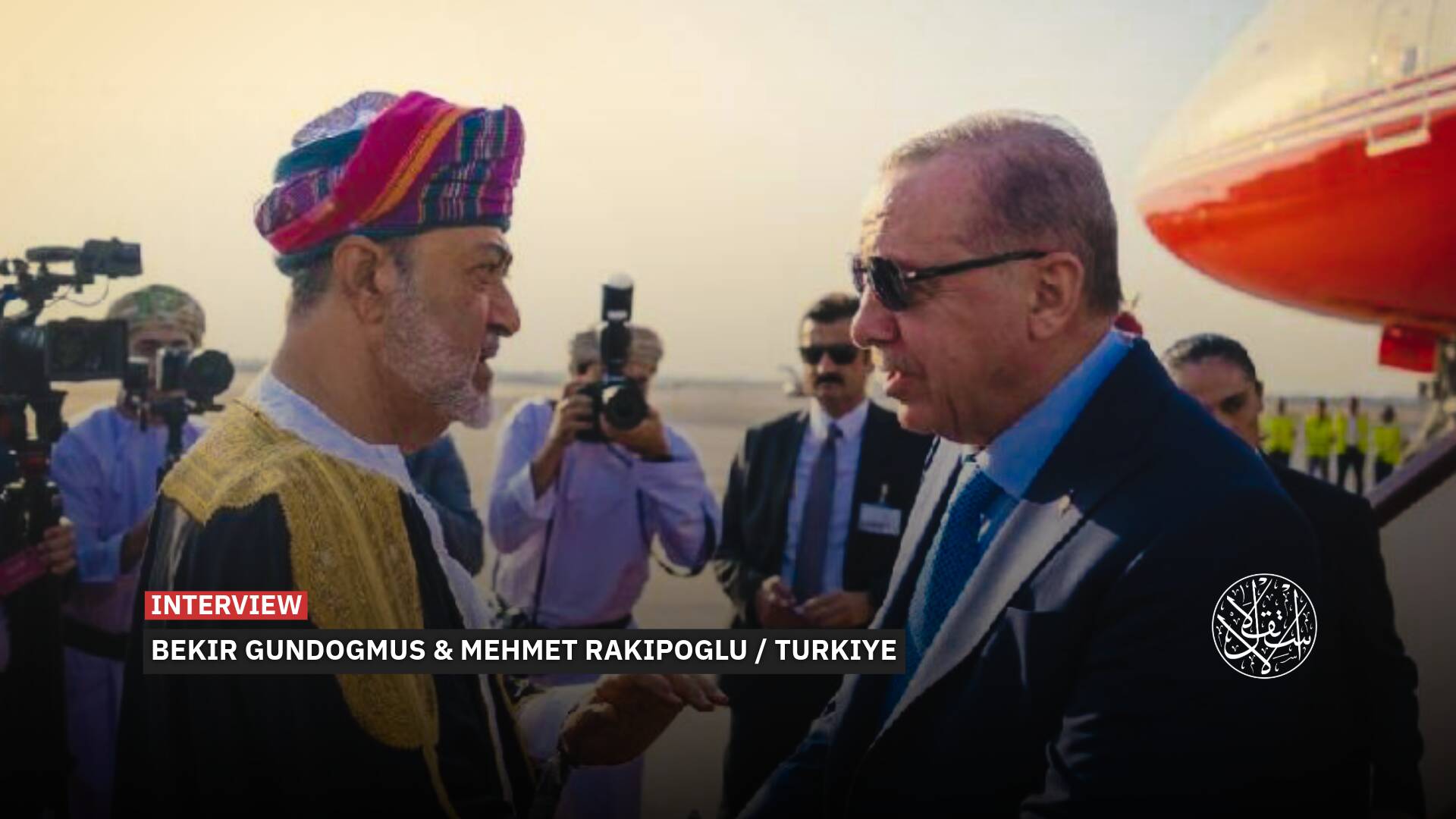Netanyahu's Post-Iran Aggression Popularity: A Path to Early Elections and Trial Avoidance?

Netanyahu’s top objective following the aggression against Iran is to amass political capital to fortify his grip on power.
Before the war with Lebanon’s “Hezbollah” and then Iran, Israeli Prime Minister Benjamin Netanyahu had been evading an inevitable fate—stemming from the failure of his offensive on Gaza, the possibility of imprisonment over corruption charges, and growing pressure threatening to fracture his right-wing coalition as he tried to avoid early elections.
But amid the euphoria of victory and Israeli celebrations over striking and weakening Hezbollah and then Iran, it is not unlikely that Netanyahu himself will move to bring elections forward, exploiting the outcome of the war to bolster his political standing and restore the position of Likud and his governing alliance.
Hebrew media reports confirmed that there are assessments suggesting the extremist ruling coalition led by Netanyahu may soon call for quick elections—possibly before the end of the year (instead of October 2026)—on the back of the victory over Iran.
Netanyahu is widely expected to push for a snap election, seeking to capitalize on the aftermath of the war with Iran.
Recent opinion polls have shown a surge in his popularity—for the first time in months—offering a potential lifeline as internal tensions threaten to unravel his coalition.
Among the looming crises are the contentious military conscription law and a war budget that is likely to spark fierce political battles.
During a press conference held on June 23, 2025, Netanyahu hinted at his intention to run for re-election, claiming he still had many tasks left to complete. He pledged to continue, he said, “as long as the people want it.”
Reasons for Moving Forward
Since the outset of the Gaza onslaught—and later the campaign in Lebanon—many Israeli politicians and commentators have accused Benjamin Netanyahu of deliberately prolonging the wars for personal rather than security-related reasons.
The consensus in much of the Israeli press has been clear: once the fighting stops, Netanyahu is likely to face trial for both his responsibility in the failure to prevent the Operation al-Aqsa Flood and longstanding corruption charges.
With the war on Iran, it became even more apparent that Netanyahu’s domestic political calculations were central to his decision to go to war—and to the timing of it.
There was little doubt he was embarking on yet another political gamble, driven by the hope that a successful campaign—particularly one that landed heavy blows on Iran’s nuclear program—would fundamentally reshape his political standing, shielding him from accountability for the Gaza debacle.
Netanyahu, keenly aware of the stakes, made a point of delivering televised addresses to the public, repeatedly declaring that he had delivered victory against Iran—rhetoric that Israeli analysts saw as a prelude to an early election bid.
The goal: to capitalize on his rising popularity, forge a new electoral alliance, remain in power, and evade prosecution over both corruption charges and the failures surrounding the war on Gaza.
Throughout the war, Israeli newspapers published polling data reflecting a boost in support for Netanyahu’s right-wing bloc, projecting it at 62 seats in the Knesset, up from its current 61.
In the first poll conducted after the Iran war, Netanyahu’s bloc rose from 46 to 48 seats out of 120, not including the ultra-Orthodox parties that traditionally align with him.
However, the opposition bloc has continued to hold a majority of 62 seats—enough, according to The Jerusalem Post on June 25, 2025, for former Prime Minister Naftali Bennett to potentially form an alternative government without the need for Arab parties.
A poll conducted by the right-leaning Walla news site, also published on June 25, revealed a significant post-war surge in support for Netanyahu’s Likud party.
The survey showed Likud gaining four seats, bringing its projected total to 26, up from 22 in the previous poll.
It marks the first time since October 2024 that Likud has overtaken Bennett’s new party, which slipped to 24 seats.
Despite Likud’s growing strength, the shift largely reflects internal reshuffling within the coalition bloc.
Otzma Yehudit, led by Itamar Ben Gvir, lost two seats, dropping from eight to six.
Meanwhile, in the opposition camp, the Democrats party led by Yair Golan made notable gains, rising to 12 seats—mainly at the expense of Yesh Atid, the National Unity party, and Bennett’s own faction.
Haaretz, citing sources close to Netanyahu in a June 25 report, said the prime minister is believed to be aiming to bring the Gaza war to an end, pursue normalization with Saudi Arabia, and call early elections.
The paper noted that the opposition had fallen into a political trap by backing the war on Iran—an implicit endorsement that, analysts say, has played squarely into Netanyahu’s hands by boosting his electoral appeal.

Political Maneuvering
Maariv reported that internal assessments within the governing coalition suggest Netanyahu may call for early elections on the back of the historic victory over Iran.
This expectation gained further traction following U.S. President Donald Trump’s announcement of a ceasefire agreement between “Israel” and Iran.
The paper noted that if early elections are announced, the campaign is likely to center on two main issues.
The first is security—Netanyahu, after the strike on Iran, has reclaimed the title of Mr. Security.
The second issue is the legal one, as Netanyahu faces corruption charges and clashes with the Supreme Court justices and the government’s legal adviser.
Maariv reported that Netanyahu will call on voters to back Likud under his leadership to allow him to finish the war against Hamas, and to lead “Israel” into an era of security under a government headed by him.
Meanwhile, a report from Channel 12 on June 24 confirmed that Netanyahu plans, once the war with Iran ends and a prisoner exchange deal with Hamas is secured, to leverage these developments politically and push for a quick election.
Sources close to Netanyahu have told reporters he is considering calling a snap election in the near future, aiming to capitalize on what is widely seen as an unprecedented strategic success in the war against Iran.
According to the report, Netanyahu views the gains made in the aggression against Iran— “Israel’s” central and most dangerous adversary—as a timely opportunity to strengthen his political position.
He is keen to harness this momentum while it still resonates with the public consciousness of voters.
The report also noted that Netanyahu is seeking to avoid mounting domestic pressures, notably the contentious military conscription law, which threatens the coalition due to opposition from ultra-Orthodox parties demanding exemptions for their communities.
Added to this is the increasingly complex budget situation, exacerbated by the ongoing war.
Religious parties, including Aryeh Deri, leader of the Shas party, had threatened to withdraw from Netanyahu’s coalition and vote against the budget in early June 2025—a move that would have effectively collapsed the government, according to Israeli political conventions.
However, Deri conceded on the conscription issue, agreeing to postpone his withdrawal until after the parliament returns from recess in August 2025, prioritizing government stability and enabling Netanyahu to pursue the war against Iran.
According to a report from Channel 12, Netanyahu also intends to leverage these achievements—alongside his claims of “transforming the Middle East,” the potential normalization agreement with Saudi Arabia, and blocking the establishment of a Palestinian state—to boost his popularity and urge Israelis to give him the mandate to see these agendas through.
Netanyahu’s primary objective following the strike on Iran is to accumulate cards of strength to present to the Israeli public—efforts aimed at erasing the stigma of the October 7, 2023 failure, when Hamas launched Operation al-Aqsa Flood.
The report noted that Netanyahu’s coalition appears to be promoting this narrative, framing October 7 as the price that had to be paid to achieve a historic correction in confronting Iran.
More Dangerous than Iran
Despite the hopes of Netanyahu’s far-right coalition to call early Knesset elections and capitalize on the achievements of the aggression against Iran, Israeli analysts argue that the aggression against Iran was never his true objective.
Rather, it served as a means to dismantle the opposition and eliminate anyone standing in his way.
In an analysis published by Haaretz, investigative journalist Gidi Weitz described Netanyahu as an internal threat equal to, if not greater than, the external Iranian danger, accusing him of seeking to dismantle institutions to secure his political and legal future.
According to Haaretz, “While facing indictments in the so-called 'Thousands Cases,' Prime Minister Benjamin Netanyahu told a confidant that the deep state–with Israel's State Prosecutor's Office as its spearhead–was "more dangerous than Hezbollah, maybe even more than Iran.”
“Even in the midst of current war, Netanyahu and his emissaries have remained undeterred from pursuing the project for which the coalition was formed: seizing control of the police, the Shin Bet security service, the judiciary and the media, systematically intimidating opponents and critics, and fully subduing the "enemy from within.”
Ministers and lawmakers within the government continue to push forward legislation aimed at dismantling the public broadcasting corporation and redirecting advertising budgets to the far-right, ultra-Orthodox-backed propaganda outlet, Channel 14, loyal to Netanyahu.
A Haaretz analysis suggests the war has accelerated Netanyahu’s campaign to annul his trial in the so-called “Thousands Cases,” coming just three days after counter-investigations in which the prime minister became entangled in a series of embarrassing falsehoods.
When police investigators questioned Netanyahu about the luxury champagne bottles his wife had accepted from wealthy friends, he retorted sharply, “I count missiles, not [champagne] bottles.”
According to Haaretz, “The quip was designed to cast him exactly as he currently seeks to portray himself: a leader who thinks in grand, historic terms, wholly focused on safeguarding the survival of the Jewish people and not on petty matters like who paid for his cigars, champagne or jewelry.”
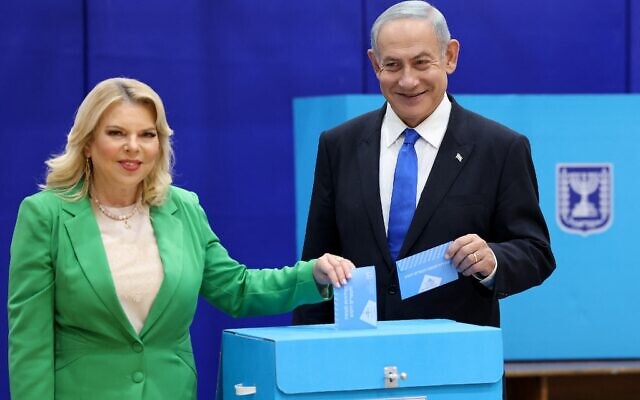
Whims and Desires
A Haaretz analysis argues that “observing Netanyahu’s behavior over recent years raises doubts that the strike on Iran was solely aimed at neutralizing the external threat or covering up the October 7 scandal.”
Instead, Netanyahu has rallied his coalition and base around a single clear objective: dismantling the institutions that investigated and prosecuted him, and curbing their power.
His ultimate aim, analysts say, is to emerge from his trials with as little damage as possible.
Netanyahu’s statements suggest a desire for revenge against all those he claims have conspired against him—an impulse that appears to outweigh everything else.
“He has even adopted the rhetoric usually reserved for external enemies in addressing his domestic foes,” the analysis noted.
In March 2023, amid widespread protests against judicial reforms in “Israel,” and following a gathering outside a salon where his wife was present, Netanyahu held a meeting with the head of the Shin Bet.
During the meeting, he described several protest leaders by name as “terrorists intent on changing the very nature of the state.”
Netanyahu’s roadmap ironically casts the war against Iran as a biblical struggle between the children of light and the children of darkness, portraying “Israel” as the vanguard of the free world confronting oppressive dictatorships.
Amid fears over Netanyahu’s potential return in a snap election and his drive to implement a plan many see as harmful to “Israel” itself, Haaretz wrote, “It is not far-fetched to imagine a day when Iran bombs the government headquarters to ‘liberate’ the oppressed people of Israel.”
Journalist Yoana Gonen documented how Netanyahu’s police have treated protesters with excessive searches involving forced disrobing, humiliation, and intimidation.
Gonen noted that this tactic, long used against Palestinian women, is now being deployed against Jewish women protesting the war or demanding the return of abductees.
He spoke of the use of sexual violence against protesters, with Netanyahu’s police repeatedly adopting tactics common in dictatorial regimes—where citizens are reduced to humiliating servants of their rulers, subject to their whims and caprices.
According to Gonen, at this brutal police pace against Netanyahu’s opponents, don’t be surprised if Iran soon announces it will bomb government headquarters in solidarity with “Israel”.
Will He Win?
Netanyahu is expected to face numerous obstacles in the upcoming Knesset session, particularly over the fierce battle surrounding his ultra-Orthodox allies’ demands for legislation exempting religious school students from military service.
Some political observers doubt his ability to pass next year’s budget, which must account for the heavy costs incurred by “Israel’s” multi-front wars, while his coalition partners are increasingly fractious and hardline in their demands.
For these reasons, Netanyahu may be keen to dissolve the government early on his own terms—a move that would benefit him politically and allow him to strengthen the right-wing Likud party’s hold on Knesset seats for himself and his allies.
Netanyahu faces significant challenges, with the near failure to pass legislation exempting religious school students from military service almost triggering the collapse of his coalition in early June 2025.
The two hardline parties within his alliance, Yahadut HaTorah and Shas, threatened to dissolve the Knesset.
Amid the coalition crisis, a poll conducted by Channel 12 showed former Prime Minister Bennett defeating Netanyahu in a potential election, as the protracted war on Gaza and what many see as Netanyahu’s acquiescence to ultra-Orthodox interests weigh heavily on public opinion.
Although recent polls have shown Netanyahu’s party gaining at least two seats, The Times of Israel noted that “it is not unlikely that the government will fall before then, as Netanyahu faces various potential coalition crises.”
According to The Jerusalem Post, “But 20 months later, after Israel, by its own estimates and those of US President Donald Trump, significantly set back Iran’s nuclear program, the prospect of Netanyahu winning reelection suddenly seems far more realistic.”
A poll conducted by Channel 12 on June 24 showed that if elections were held today, Netanyahu’s Likud party would narrowly lead Bennett’s party, 26 seats to 24.
Sources
- Netanyahu Confidants Believe PM Seeks to End Gaza War, Forge Ties With Saudis – Then Call for Election
- Netanyahu surges in first poll after Iran war, Bennett's bloc remains ahead, election poll finds
- Netanyahu's 'Almost Messianic State of Mind' Is No Less Dangerous to Israel Than Iran
- Netanyahu said weighing snap elections in light of popular Iran offensive
- Not every wartime victory translates into political one





